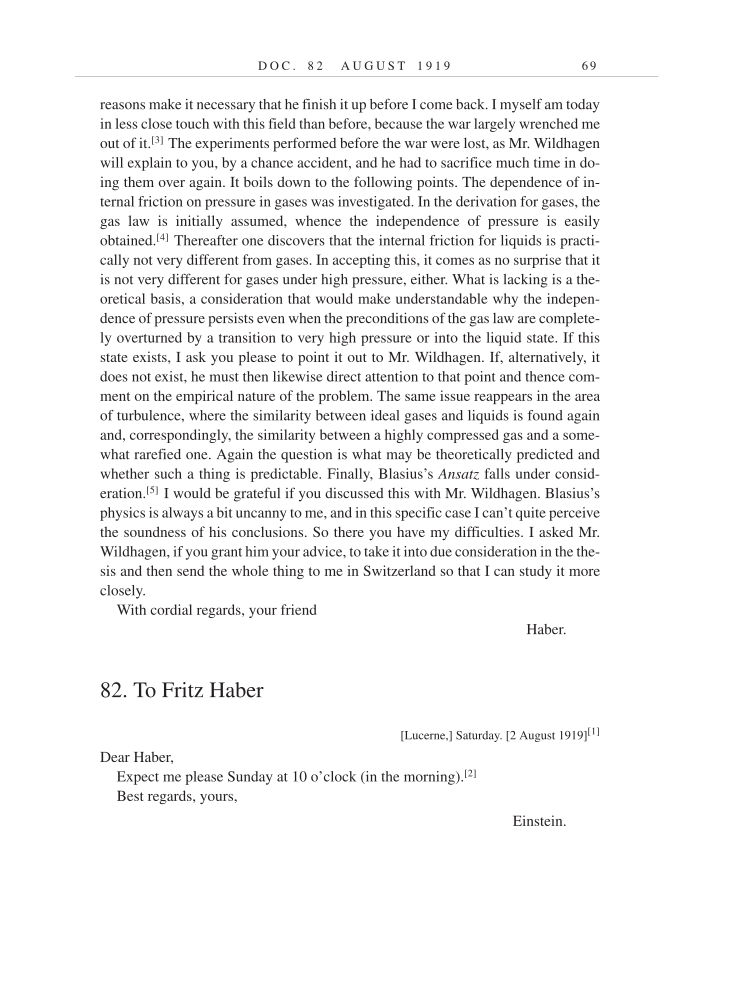D O C . 8 2 A U G U S T 1 9 1 9 6 9 reasons make it necessary that he finish it up before I come back. I myself am today in less close touch with this field than before, because the war largely wrenched me out of it.[3] The experiments performed before the war were lost, as Mr. Wildhagen will explain to you, by a chance accident, and he had to sacrifice much time in do- ing them over again. It boils down to the following points. The dependence of in- ternal friction on pressure in gases was investigated. In the derivation for gases, the gas law is initially assumed, whence the independence of pressure is easily obtained.[4] Thereafter one discovers that the internal friction for liquids is practi- cally not very different from gases. In accepting this, it comes as no surprise that it is not very different for gases under high pressure, either. What is lacking is a the- oretical basis, a consideration that would make understandable why the indepen- dence of pressure persists even when the preconditions of the gas law are complete- ly overturned by a transition to very high pressure or into the liquid state. If this state exists, I ask you please to point it out to Mr. Wildhagen. If, alternatively, it does not exist, he must then likewise direct attention to that point and thence com- ment on the empirical nature of the problem. The same issue reappears in the area of turbulence, where the similarity between ideal gases and liquids is found again and, correspondingly, the similarity between a highly compressed gas and a some- what rarefied one. Again the question is what may be theoretically predicted and whether such a thing is predictable. Finally, Blasius’s Ansatz falls under consid- eration.[5] I would be grateful if you discussed this with Mr. Wildhagen. Blasius’s physics is always a bit uncanny to me, and in this specific case I can’t quite perceive the soundness of his conclusions. So there you have my difficulties. I asked Mr. Wildhagen, if you grant him your advice, to take it into due consideration in the the- sis and then send the whole thing to me in Switzerland so that I can study it more closely. With cordial regards, your friend Haber. 82. To Fritz Haber [Lucerne,] Saturday. [2 August 1919][1] Dear Haber, Expect me please Sunday at 10 o’clock (in the morning).[2] Best regards, yours, Einstein.
